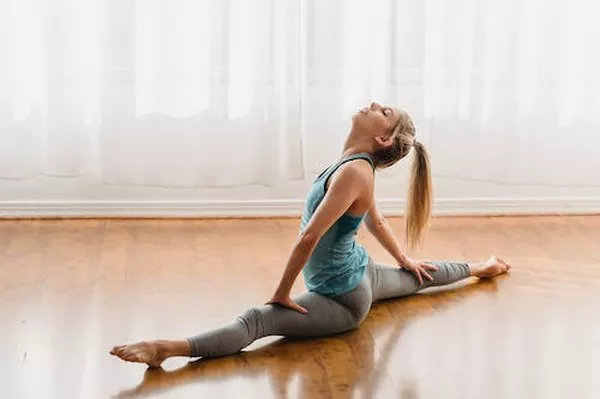Hot yoga has become a popular choice for many fitness enthusiasts due to its numerous benefits. It is a form of yoga practiced in a room heated between 95 and 105 degrees Fahrenheit, which helps the body to sweat more, detoxify, and improve flexibility. Despite these benefits, many individuals report feeling exhausted after a hot yoga session. In this article, we explore the reasons why you may feel tired after hot yoga and what you can do to overcome it.
Dehydration
One of the most common reasons why individuals feel tired after hot yoga is dehydration. The heat in the studio causes the body to sweat heavily, which can lead to significant fluid loss. Dehydration can cause fatigue, weakness, and dizziness, making it hard to carry out daily activities. To prevent dehydration, it is essential to drink plenty of water before, during, and after your hot yoga session. Drinking fluids such as coconut water or electrolyte-rich drinks can also help replenish lost minerals and salts.
Muscle Fatigue
Hot yoga requires a lot of physical effort and can be challenging for beginners who are not used to the movements. The heat can increase muscle tension, making it harder to relax and stretch. As a result, muscles can become fatigued, leading to soreness and exhaustion. Stretching before and after class, taking breaks when necessary, and using props to support your movements can help alleviate muscle fatigue and prevent injury.
Overexertion
While hot yoga is an excellent way to challenge the body and build strength, overexertion can occur if you push yourself too hard. Overexertion can lead to fatigue, muscle soreness, and even injury. It is crucial to listen to your body and not push beyond your limits. If you feel dizzy, light-headed, or experience any pain during class, it is essential to take a break and rest. Remember, yoga is about listening to your body and finding a balance between effort and relaxation.
Low Blood Sugar
Low blood sugar can cause fatigue and weakness, making it hard to carry out physical activities. Hot yoga increases the body’s metabolism, which can cause blood sugar levels to drop. To prevent low blood sugar, it is important to eat a nutritious meal or snack before class. Snacking on foods such as fruits, nuts, or energy bars can help maintain blood sugar levels during class.
Lack of Sleep
Sleep is essential for the body to function correctly, and lack of sleep can lead to fatigue and exhaustion. Practicing hot yoga late in the evening can disrupt sleep patterns, leading to tiredness the following day. It is recommended to practice hot yoga earlier in the day or in the morning to avoid disrupting sleep patterns. If you struggle with insomnia or have trouble sleeping, practicing restorative yoga poses, such as forward folds or child’s pose, can help promote relaxation and improve sleep quality.
Stress and Anxiety
Hot yoga can be an excellent way to reduce stress and anxiety, but it can also cause stress if you are not used to the heat or find the movements challenging. Stress and anxiety can cause fatigue, making it hard to focus and carry out daily activities. Practicing breathing exercises, such as pranayama, can help calm the mind and reduce stress. Additionally, taking breaks when necessary and not pushing yourself beyond your limits can help alleviate stress and anxiety.
Conclusion
In conclusion, feeling tired after hot yoga is normal, but it can be prevented by taking care of your body. Staying hydrated, stretching before and after class, avoiding overexertion, maintaining blood sugar levels, getting enough sleep, and managing stress and anxiety can all help prevent fatigue and exhaustion. Remember, yoga is not about pushing yourself to the limit but about finding a balance between effort and relaxation. By taking care of your body and listening to its needs, you can enjoy the many benefits of hot yoga without feeling exhausted or fatigued.
Related topics:


